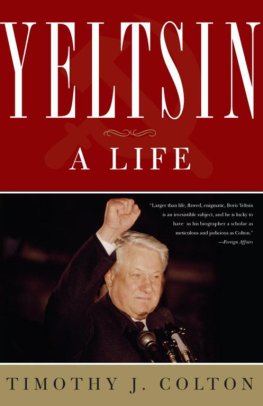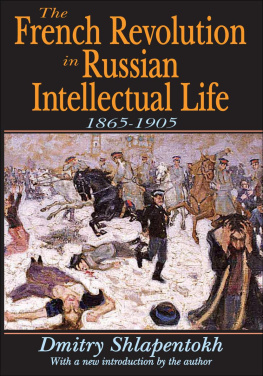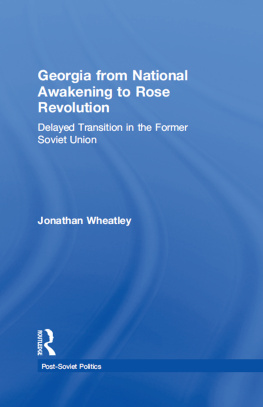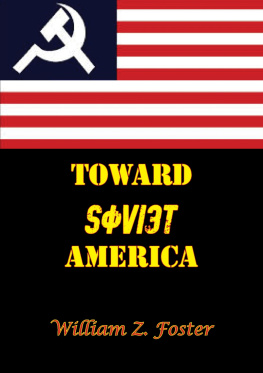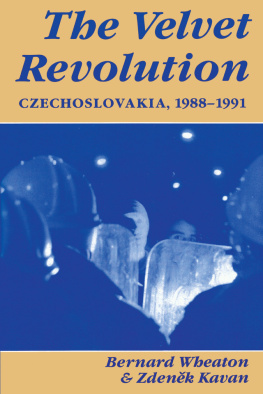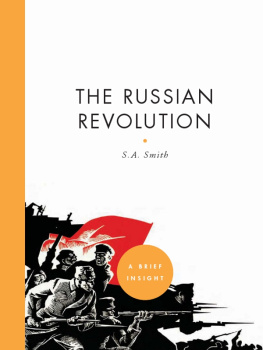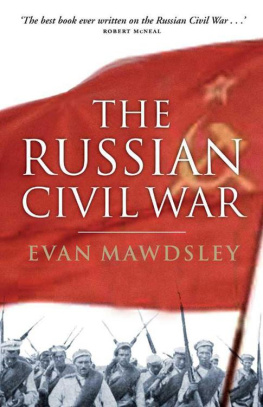First published 2002 by Transaction Publishers
Published 2017 by Routledge
2 Park Square, Milton Park, Abingdon, Oxon 0X14 4RN
711 Third Avenue, New York, NY 10017, USA
Copyright 2002 by Taylor & Francis.
Routledge is an imprint of the Taylor & Francis Group, an informa business
All rights reserved. No part of this book may be reprinted or reproduced or utilised in any form or by any electronic, mechanical, or other means, now known or hereafter invented, including photocopying and recording, or in any information storage or retrieval system, without permission in writing from the publishers.
Notice:
Product or corporate names may be trademarks or registered trademarks, and are used only for identification and explanation without intent to infringe.
Library of Congress Catalog Number: 2001054204
Library of Congress Cataloging-in-Publication Data
Hahn, Gordon M.
Russias revolution from above, 1985-2000 : reform, transition, and revolution in the fall of the Soviet communist regime / Gordon M. Hahn.
p. cm.
Includes bibliographical references and index.
ISBN 0-7658-0049-7 (alk. paper)
1. Soviet UnionPolitics and government1985-2000. 2. Russia (Federation)Politics and government1991- I. Title.
LDK288.H33 2001
947.0854-dc212001054204
ISBN 13: 978-0-7658-0049-7 (hbk)
This present book is an attempt to understand what was the most important case of political change in the last decade of the twentieth century, if not in the century itself: the sudden, and to some, surprising demise of the Soviet communist regime and state in 1991 and the rise of an illiberal post-Soviet Russia stifled by a weak electoral democracy and cleptocratic capitalism. It is an attempt to elucidate the multi-causality, contingency, and factoral complexity that produced the unintended revolutionary outcome of Mikhail Gorbachevs reform program known as perestroika.
In thinking about the fall of the Soviet communist regime and the collapse of the Soviet Union, political scientists have tended to put the theoretical cart before the empirical horse. This regrettable practice is an outcome of political sciences infatuation with formal theory. Academic fashion pressures many young scholars to rush to plug recent historical events or data points (as the science reduces them to) into the theories that dominate the extant literature and dictate who gets the much coveted tenure-track positions in university political science departments, leaving time-consuming empirical approaches and possibilities for new theory-building by the wayside. Post-Soviet Rusologists and comparative political scientists alike began immediately to plug the fall of the Soviet regime into the proto-theories of democratization and even more problematically transitology, largely eschewing theories of revolutionary change, let alone the present books more exotic model of revolution from above. The present book presents a conceptualization of the Soviet communist regime and state by applying it to various theories of regime change, but it does not do so by drawing on selective data in a rush to develop presently popular theories.
Political scientists rarely grace the halls of archives, foreign or domestic. Rational choice theorists seem to consider the idea as preposterous as the learning of foreign languages and cultures. Opinion surveys, an important tool for political scientists, are useful for studying open societies contemporaneously, but are a blunt instrument for studying totalitarian and post-totalitarian societies and virtually useless for historiographical investigation. I take another approach. This book is informed by three years of living and traveling in the USSR and Russia, more than a decade of careful research, including interviews and three years of archival research into the politics, broadly conceived, of the Soviet Union and its post-Soviet successor states, especially Russia. I have attempted to cover the empirical lay of the land thoroughly before constructing what will hopefully be considered a sturdy, if still incomplete structure housing a very different theoretical conceptualization of the great Soviet transformationa civilian bureaucrat-led revolution from above.
Besides the fields structural and methodological pitfalls, there is another problem clouding the lens through which we might get a clear focus on the nature and causes of the Soviet demise. A good part of the old sovietological community argued that the Soviet communist regime was unreformable. The integral and rigid nature of the Soviet system and its supporting ideology were writ large, according to some analysts, such that the system could not and would not undergo substantive change. This view has its counterpart in the early (and not so early) Gorbachev era: Gorbachev was no reformer, and perestroika was no more than the next KGB disinformation campaign designed to lower the Wests guard against the advance of international communism. In post-Soviet analysis the USSR is viewed as having been incapable of transforming into a new form of rule by way of transition, and the new Russia is seen as not so new, destined to revert to its authoritarian and Asiatic past and fail in its quest to become a member of the community of democratic states, the globalizing free market, and a re-united Europe. This book concludes that the jury is still out on post-Soviet Russias transformation and offers an explanation as to why.


